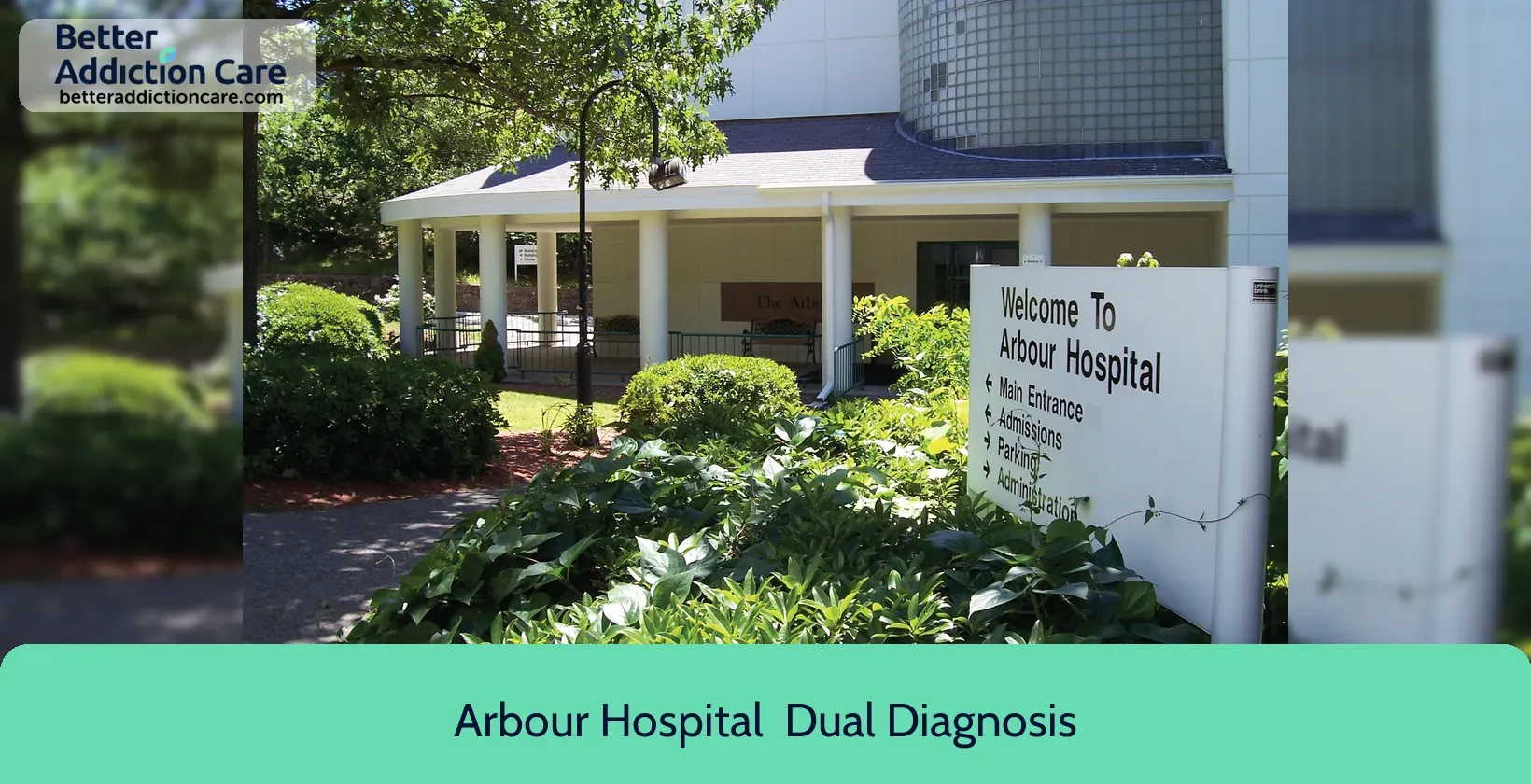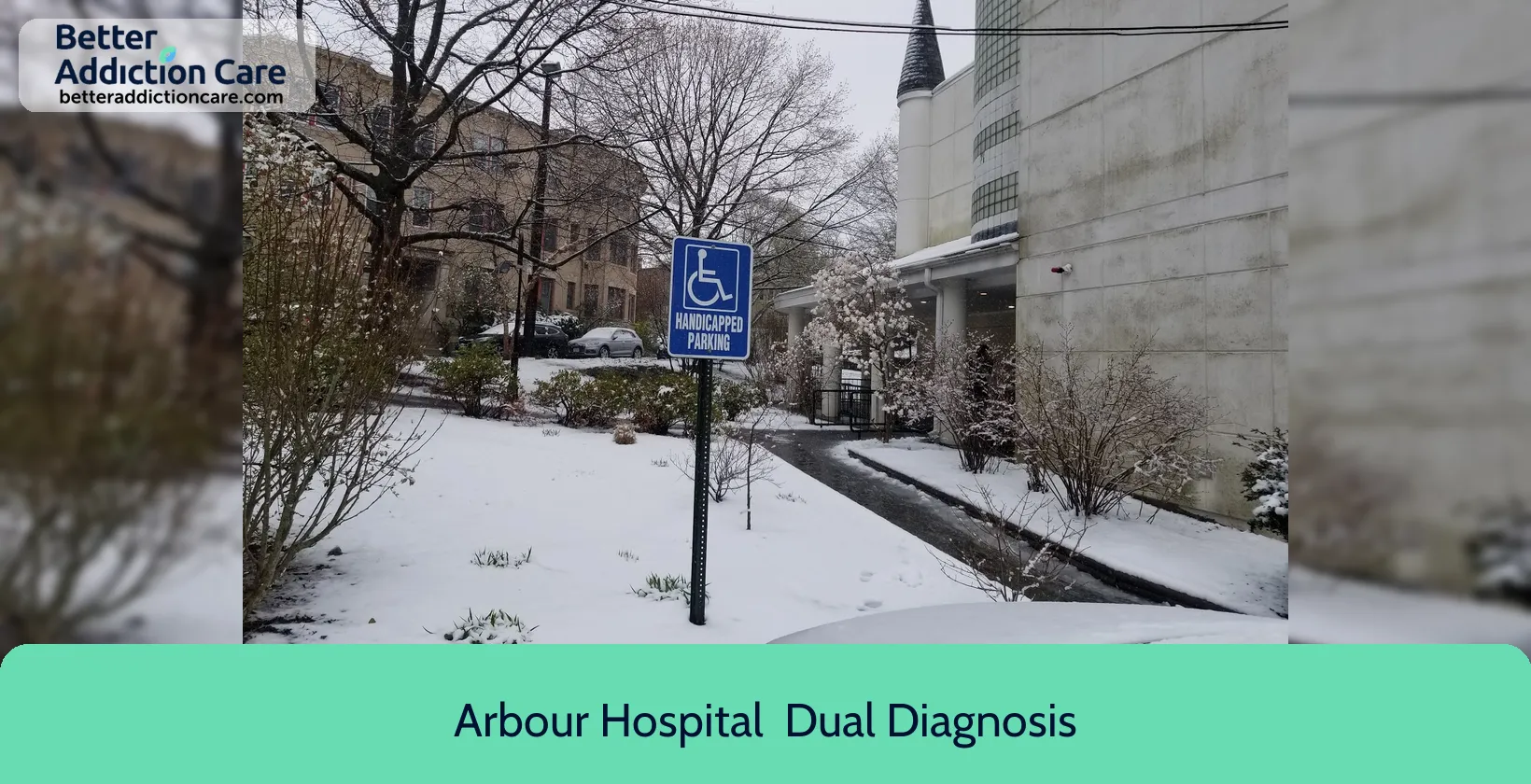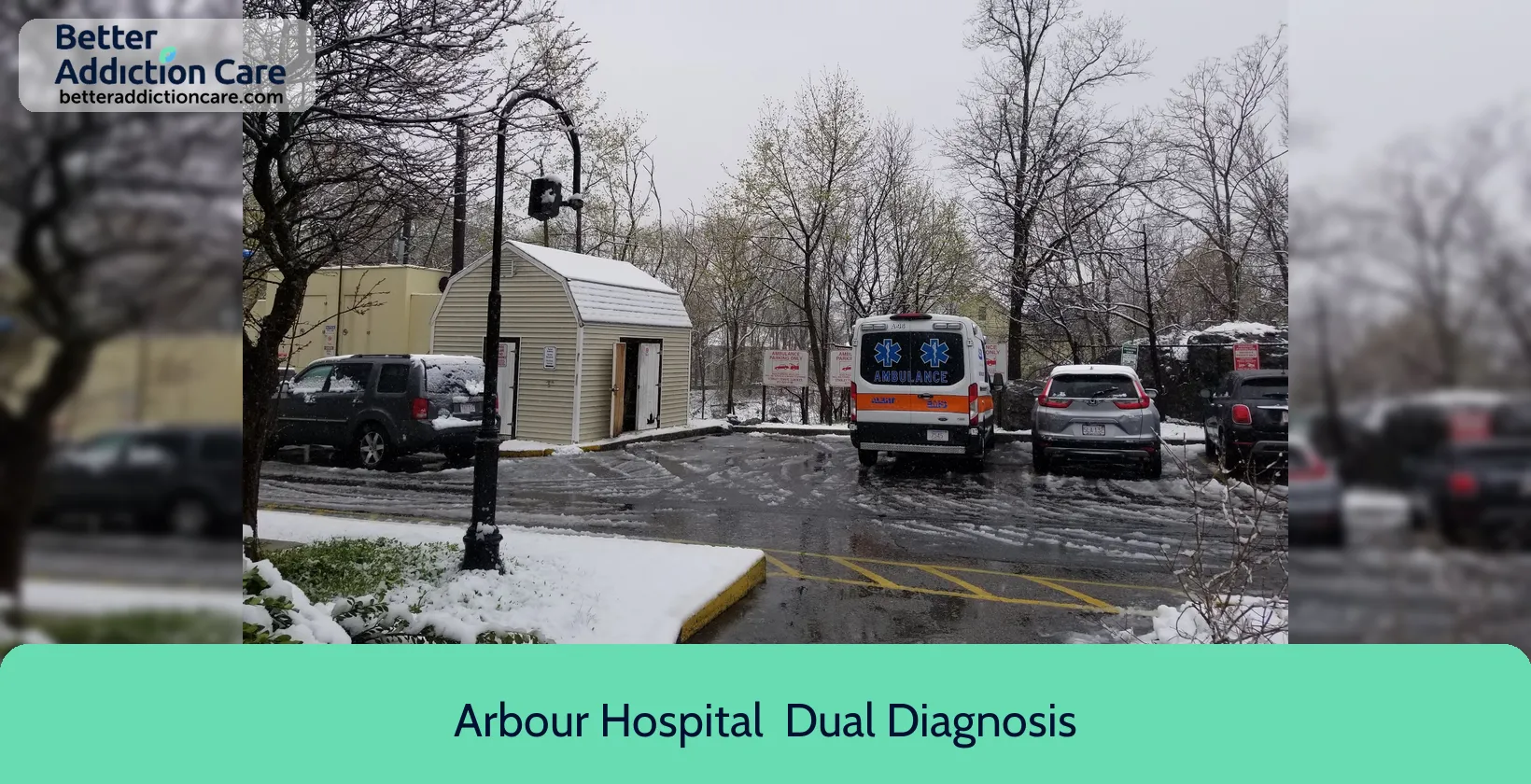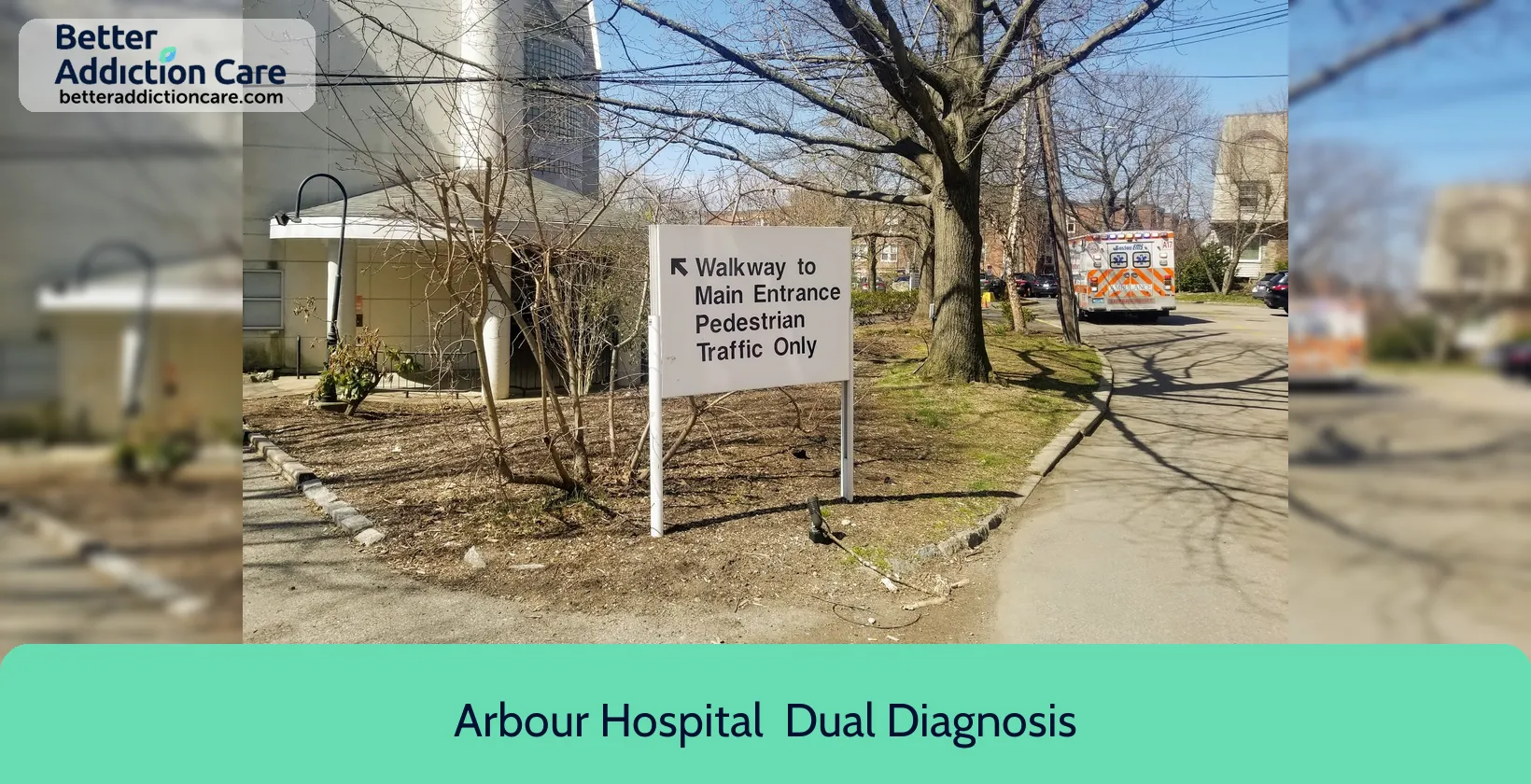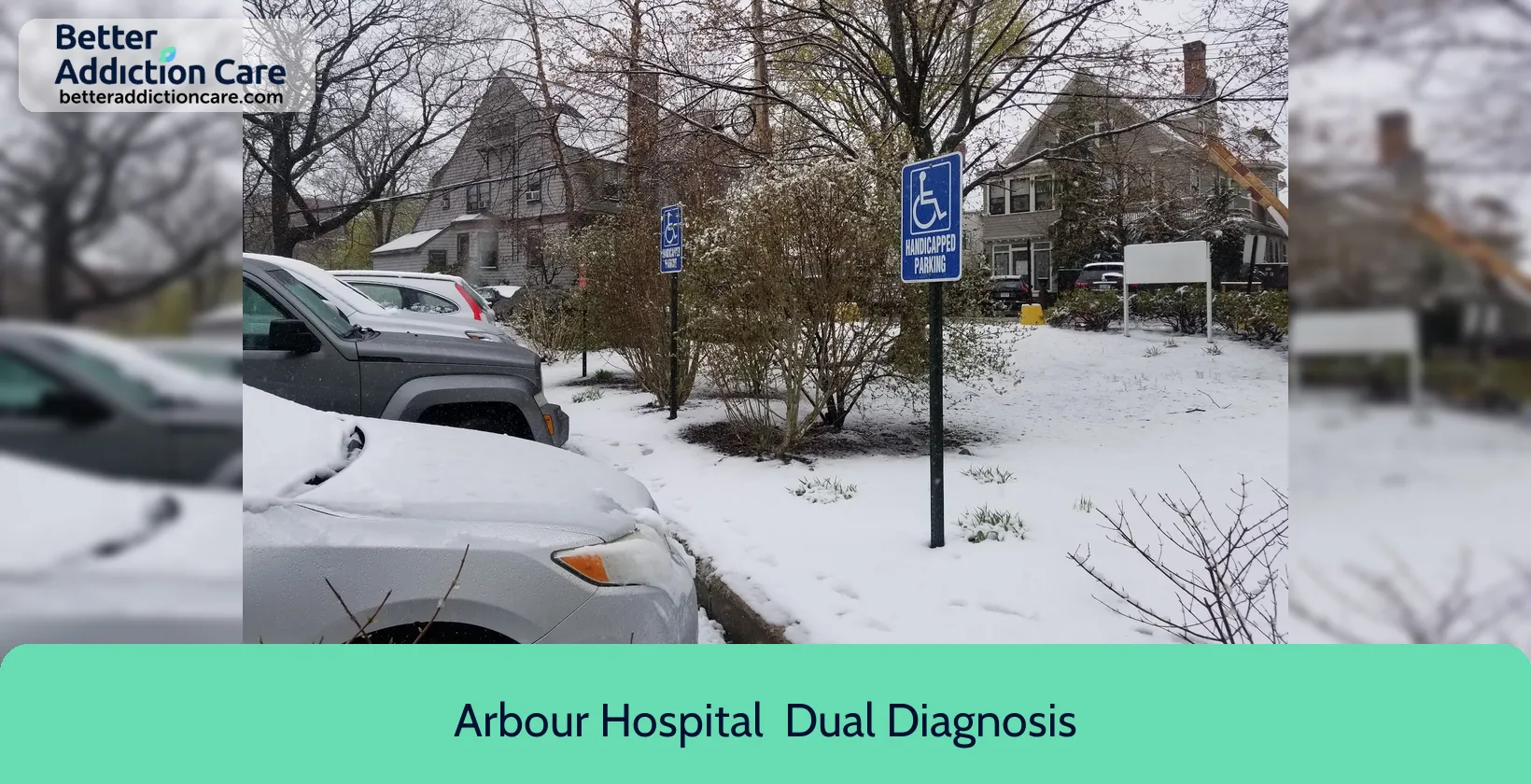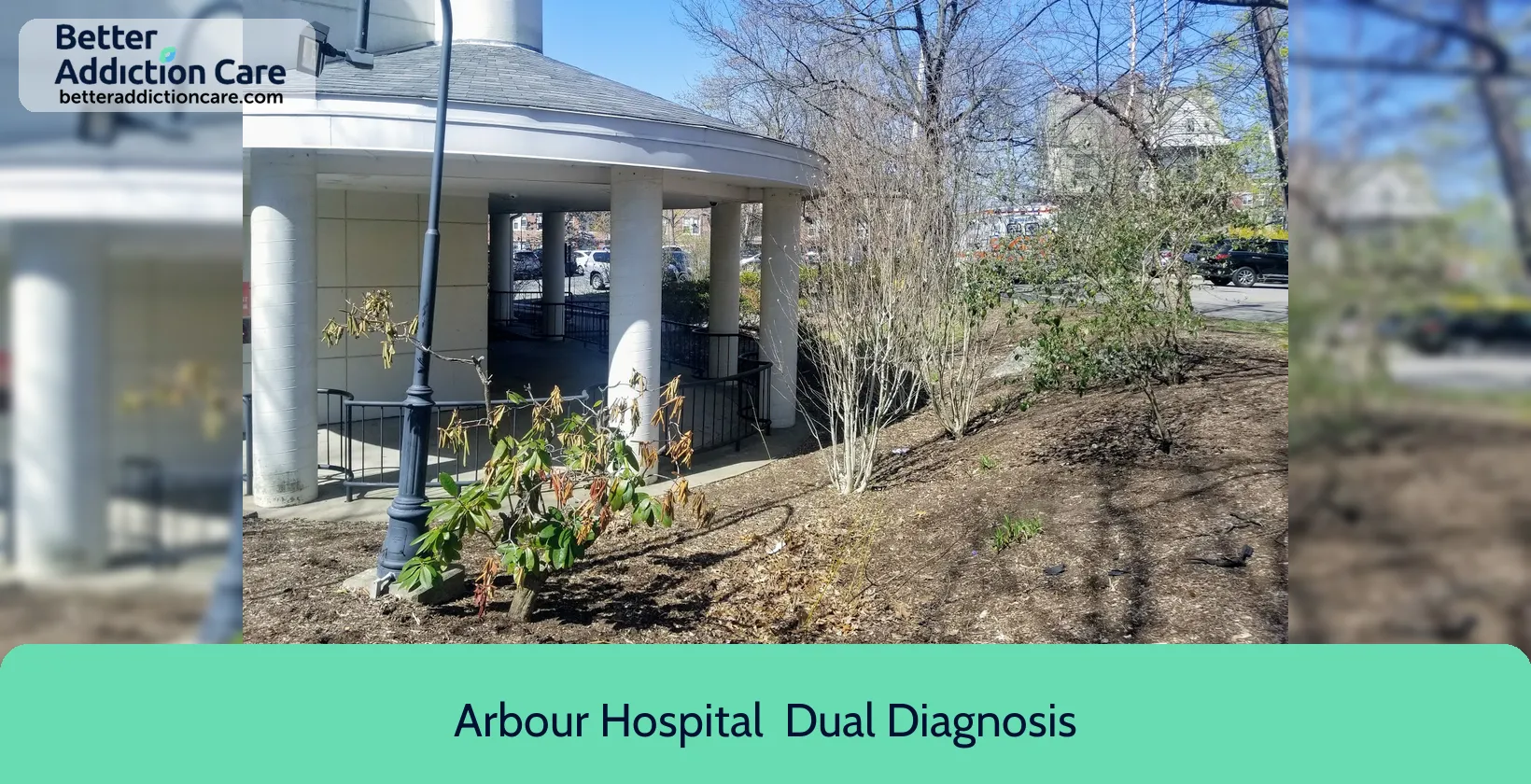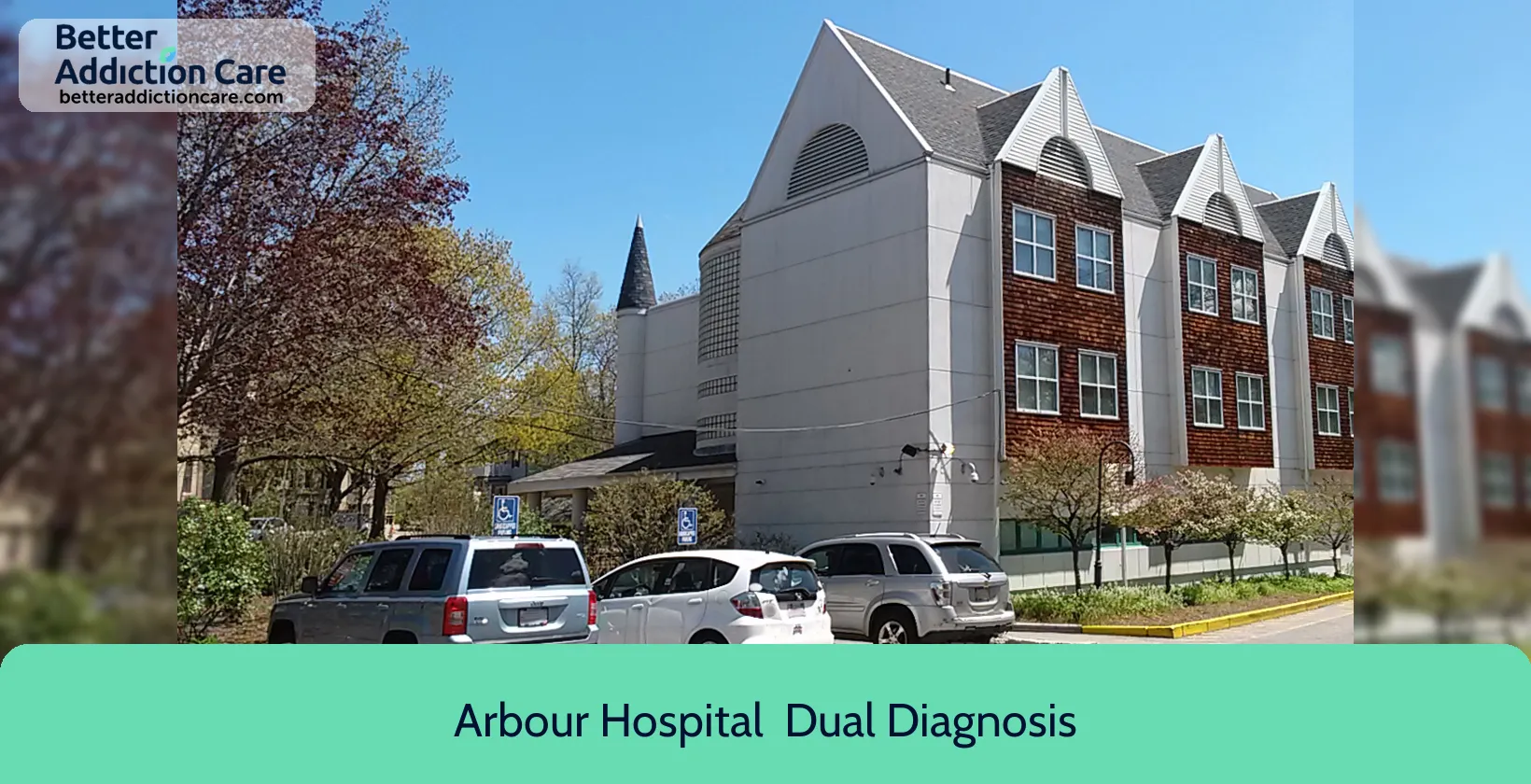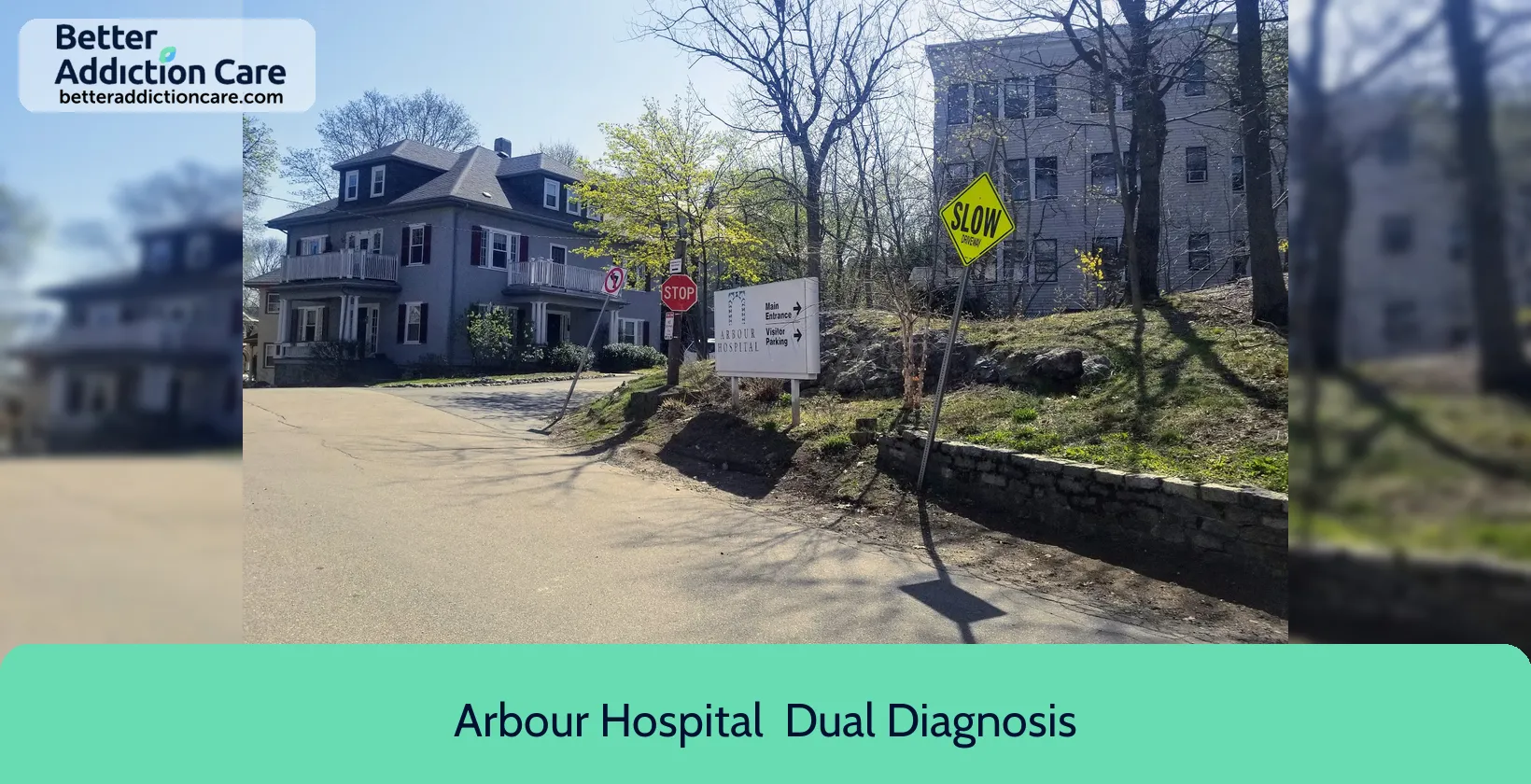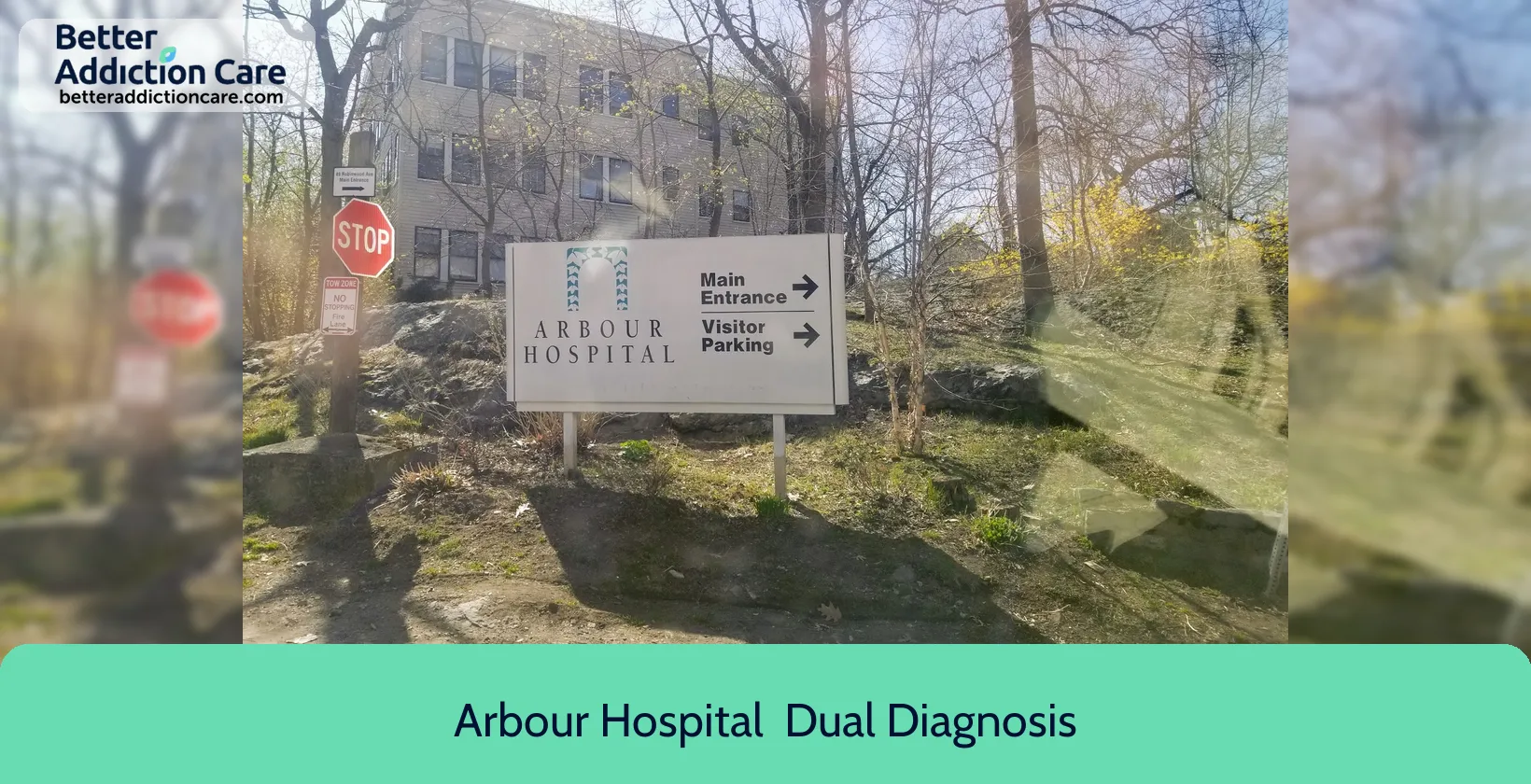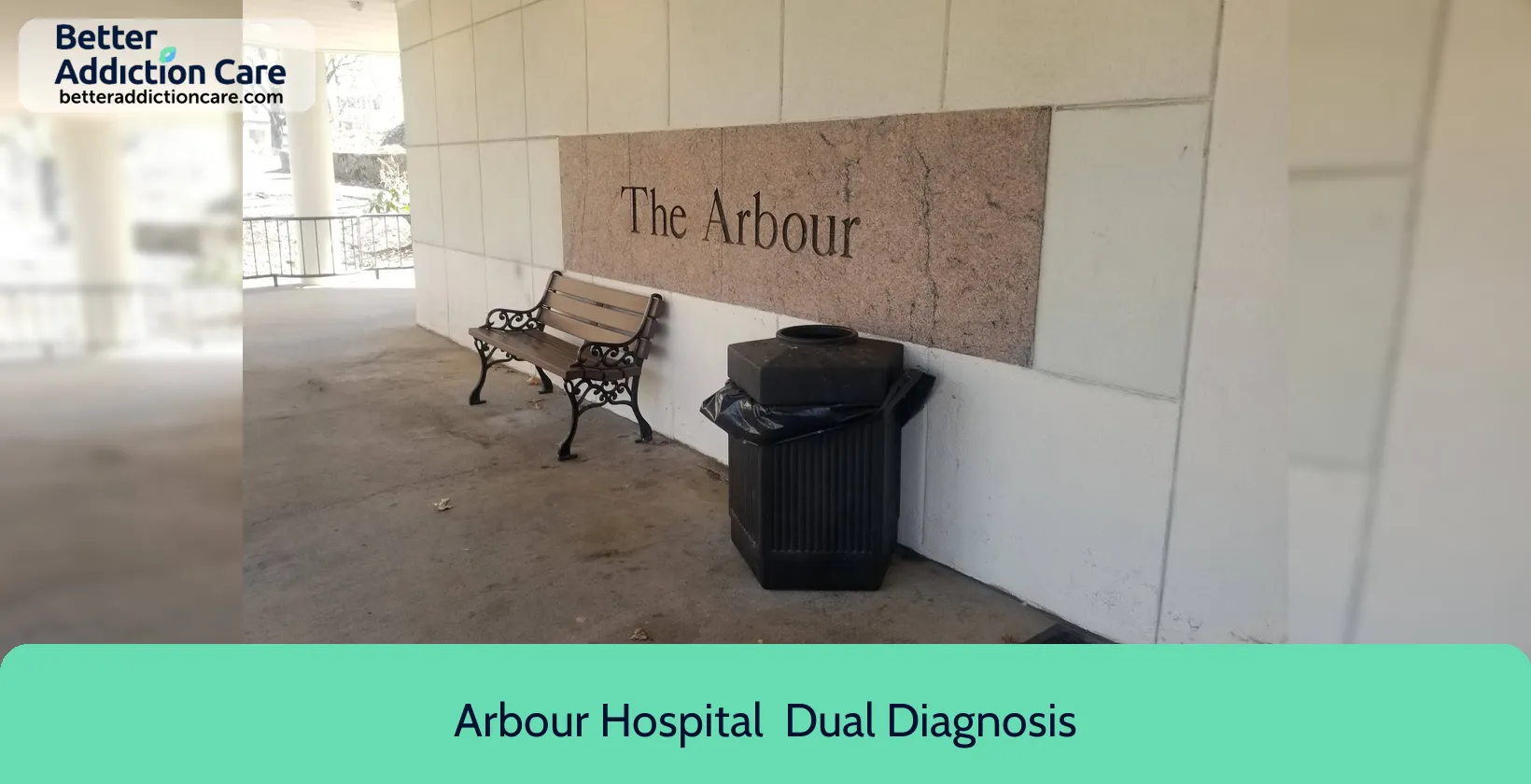Arbour Hospital - Dual Diagnosis Treatment
Overview
Arbour Hospital - Dual Diagnosis Treatment is an accredited mental health treatment center that provides inpatient and outpatient treatment for men from 18+ years of age. As part of their special programs, Arbour Hospital - Dual Diagnosis Treatment treats clients with co-occurring mental and substance use disorders, clients who have experienced trauma, and children/adolescents with serious emotional disturbance (sed). To help patients achieve sobriety, Arbour Hospital - Dual Diagnosis Treatment provides intake assessments. Afterward, patients receive group counseling, integrated mental and substance use disorder treatment, and activity therapy during treatment. Arbour Hospital - Dual Diagnosis Treatment is located in Jamaica Plain, Massachusetts, providing treatment for people in Suffolk County, accepting cash or self-payment, medicaid, and medicare.
Arbour Hospital - Dual Diagnosis Treatment at a Glance
Payment Options
- Cash or self-payment
- Medicaid
- Medicare
- State-financed health insurance plan other than Medicaid
- Private health insurance
Assessments
- Screening for tobacco use
- Comprehensive mental health assessment
- Comprehensive substance use assessment
Age Groups
- Young adults
- Children/adolescents
- Adults
- Seniors
Ancillary Services
- Case management service
- Court-ordered outpatient treatment
Highlights About Arbour Hospital - Dual Diagnosis Treatment
6.62/10
With an overall rating of 6.62/10, this facility has following balanced range of services. Alcohol Rehabilitation: 8.00/10, Drug Rehab and Detox: 6.00/10, Insurance and Payments: 6.00/10, Treatment Options: 6.49/10.-
Alcohol Rehabilitation 8.00
-
Treatment Options 6.49
-
Drug Rehab and Detox 6.00
-
Insurance and Payments 6.00
Accreditations
The Joint Commission:

The Joint Commission accreditation for addiction and behavioral health is a prestigious recognition signifying a facility's commitment to delivering high-quality care and safety for individuals dealing with substance abuse and mental health issues. It involves rigorous evaluations and assessments, ensuring patients receive evidence-based treatment and exceptional care. This accreditation demonstrates a facility's dedication to continuous improvement and ethical practices, building trust among patients and healthcare professionals seeking top-tier addiction and behavioral health services.
Treatment At Arbour Hospital - Dual Diagnosis Treatment
Treatment Conditions
- 24-Hour Clinical Care
- Mental health treatment
- Alcoholism
- Substance use treatment
- Co-occurring Disorders
Care Levels
- Partial Hospitalization Program
- Outpatient
- Hospital inpatient/24-hour hospital inpatient
Treatment Modalities
- Group counseling
- Integrated Mental and Substance Use Disorder treatment
- Activity therapy
- Telemedicine/telehealth therapy
- Smoking/vaping/tobacco cessation counseling
Ancillary Services
Languages
- Sign language services for the deaf and hard of hearing
Additional Services
- Pharmacotherapies administered during treatment
- Metabolic syndrome monitoring
Special Programs
- Clients with co-occurring mental and substance use disorders
- Clients who have experienced trauma
- Children/adolescents with serious emotional disturbance (SED)
- Persons 18 and older with serious mental illness (SMI)
- Persons with post-traumatic stress disorder (PTSD)
Get Help Now
Common Questions About Arbour Hospital - Dual Diagnosis Treatment
Contact Information
Other Facilities in Jamaica Plain

6.86
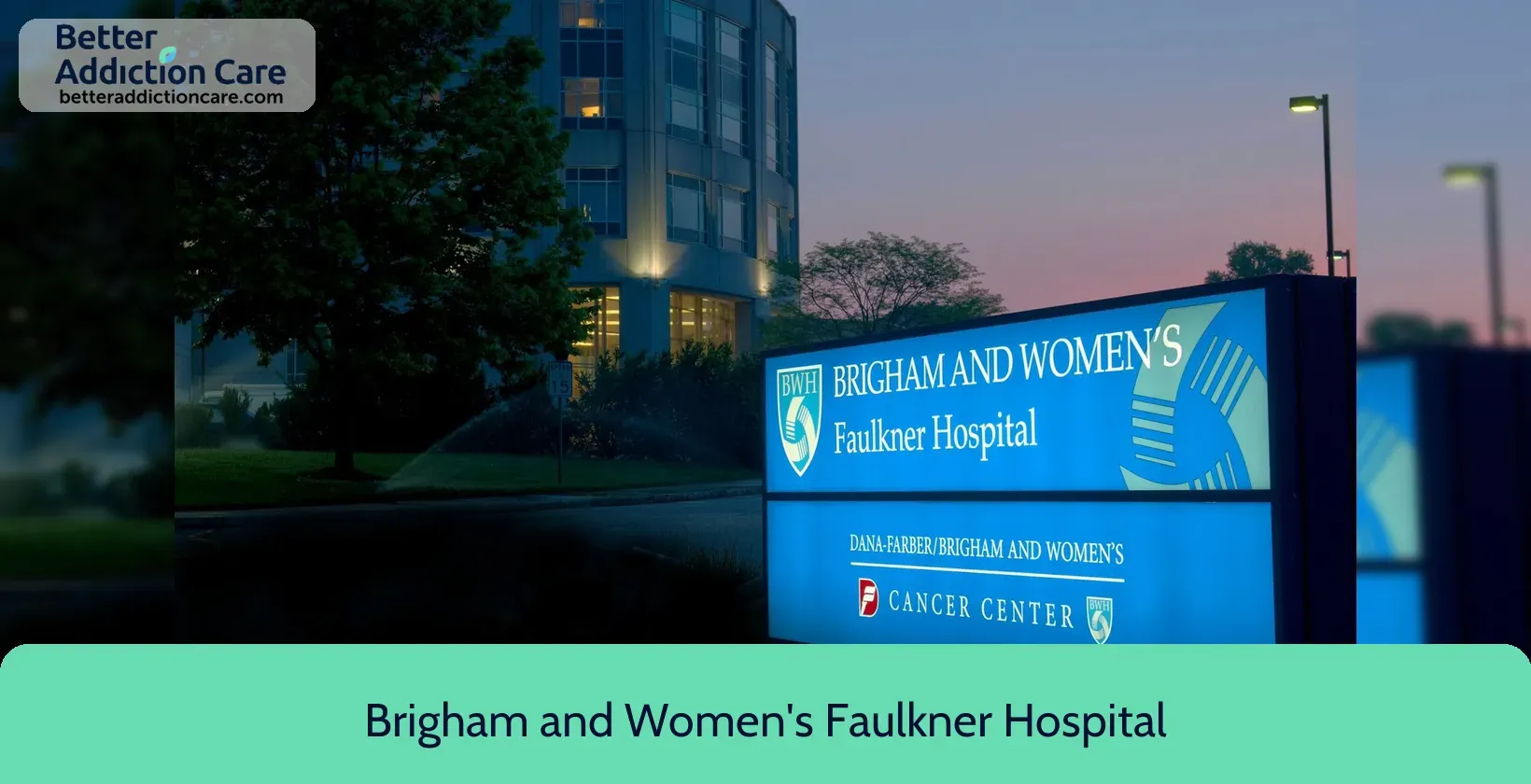
7.49
DISCLAIMER: The facility name, logo and brand are the property and registered trademarks of Brigham and Women's Faulkner Hospital, and are being used for identification and informational purposes only. Use of these names, logos and brands shall not imply endorsement. BetterAddictionCare.com is not affiliated with or sponsored by Brigham and Women's Faulkner Hospital.
